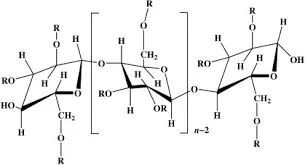
Dec . 04, 2024 08:37 Back to list
Understanding the Applications and Benefits of HPMC in Various Industries
What is HPMC Used For?
Hydroxypropyl methylcellulose (HPMC) is a versatile, semi-synthetic polymer that has become an essential component in various industries, primarily due to its unique properties such as water solubility, film-forming ability, and thickening characteristics. Derived from cellulose, HPMC is often used in food, pharmaceuticals, cosmetics, and construction materials, among other applications. In this article, we will delve into the primary uses of HPMC and explore its benefits in different fields.
1. Food Industry
In the food industry, HPMC serves multiple roles due to its stabilizing and emulsifying properties. It is widely used as a thickening agent and texture enhancer in various food products, including sauces, dressings, and dairy items. HPMC helps maintain the consistency of these products, preventing separation and enhancing mouthfeel. Furthermore, it is utilized in gluten-free baking as a substitute for gluten, providing elasticity and improving the texture of baked goods. The food-grade HPMC has received approval from food safety authorities globally, ensuring its safe consumption.
2. Pharmaceutical Applications
HPMC plays a pivotal role in the pharmaceutical industry. It is commonly used in the formulation of tablets, capsules, and other drug delivery systems. Due to its excellent film-forming properties, HPMC is often employed as a binder in tablet formulations, ensuring the uniform distribution of active ingredients and improving the overall stability of the product. Additionally, HPMC is used to create controlled-release formulations, where the polymer regulates the release rate of the drug, resulting in a prolonged therapeutic effect. Its biocompatibility also makes it suitable for use in various pharmaceutical applications, including ophthalmic solutions and injectable formulations.
3. Cosmetic and Personal Care Products
what is hpmc used for

In cosmetics and personal care products, HPMC is valued for its thickening and emulsifying properties. It is frequently used in lotions, creams, shampoos, and other formulations to enhance texture and consistency. By increasing the viscosity of these products, HPMC improves their application and spreadability on the skin or hair. Moreover, HPMC acts as a stabilizer in emulsions, helping to maintain the integrity of oil-in-water formulations. Its ability to create a smooth, pleasing texture makes it a preferred ingredient in many personal care products.
4. Construction Industry
The construction industry benefits from HPMC in several ways, particularly in the formulation of cement-based materials. It is commonly used as a water-retention agent in tile adhesives, gypsum plasters, and other building materials. By retaining water, HPMC helps improve the workability of these materials while preventing cracking during the drying process. Additionally, its ability to enhance adhesion and flexibility makes it an essential additive in modern construction practices, improving the performance and longevity of structures.
5. Personal Lubricants and Medical Applications
HPMC is also employed in the production of personal lubricants and medical devices. Its lubricating properties are beneficial in reducing friction and enhancing comfort during physical intimacy or medical procedures. The polymer’s compatibility with various formulations allows it to be used in both water-based and silicone-based lubricants. Furthermore, HPMC is utilized in the development of artificial tears and other ocular formulations due to its ability to retain moisture and provide a longer-lasting lubricating effect.
Conclusion
In summary, hydroxypropyl methylcellulose (HPMC) is a multifunctional polymer with a wide range of applications across various industries, including food, pharmaceuticals, cosmetics, and construction. Its unique properties such as water solubility, thickening capability, and film-forming ability make it an invaluable ingredient in many formulations. As innovations continue in multiple sectors, the demand for HPMC is likely to grow, highlighting its significance in enhancing product performance and consumer satisfaction.
-
Versatile Hpmc Uses in Different Industries
NewsJun.19,2025
-
Redispersible Powder's Role in Enhancing Durability of Construction Products
NewsJun.19,2025
-
Hydroxyethyl Cellulose Applications Driving Green Industrial Processes
NewsJun.19,2025
-
Exploring Different Redispersible Polymer Powder
NewsJun.19,2025
-
Choosing the Right Mortar Bonding Agent
NewsJun.19,2025
-
Applications and Significance of China Hpmc in Modern Industries
NewsJun.19,2025







